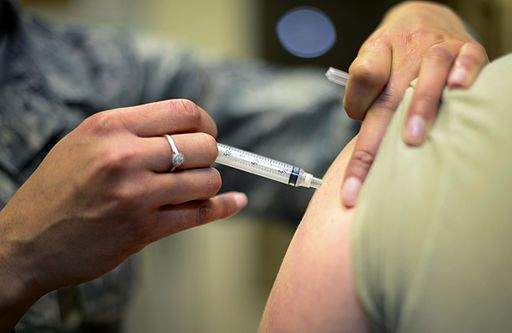
A new typhoid conjugate vaccine (TCV) has been administered for the first time to a child in Malawi. The vaccine, Typbar-TCV, was recently prequalified by the World Health Organisation (WHO).
The University of Liverpool and the Malawi-Liverpool-Wellcome Trust (MLW) Clinical Research Programme conducted clinical trials of the vaccine. In total, 24,000 children from Ndirande and Zingwangwa townships are due to be enrolled in the Malawi trial, which aims to assess the efficacy and cost-effectiveness of TCV in children.

Discover B2B Marketing That Performs
Combine business intelligence and editorial excellence to reach engaged professionals across 36 leading media platforms.
Typhoid is a bacterial infection caused by Salmonella typhi with symptoms including fever, abdominal pain and, in extreme cases, jaundice and bleeding or perforation of the bowel. It sees almost 12 million cases and 128,000 deaths annually and is most commonly seen in developing countries with poor water and sanitation.
“At the Malawi-Liverpool-Wellcome Trust Unit we have worked on typhoid and invasive Salonella disease for over 20 years, and seen a dramatic increase in multidrug-resistant typhoid over the last five years,” principal investigator Professor Melita Gordon told Drug Development Technology. “It is enormously exciting that Malawi is in a position to lead the way with the trial, the first in Africa, for the first new typhoid vaccine in a generation. We have been in close communication with our partners in the Ministry of Health, and the recent WHO pre-qualification of the vaccine, and subsequent approval of GAVI finding for introduction from 2019, mean that this trial has come at a key moment. It will contribute key information allowing accelerated vaccine introduction on a large scale.”
The Malawi trial is part of the Typhoid Vaccine Acceleration Consortium (TyVAC), a collaboration between the University of Maryland School of Medicine’s (UMSOM) Center for Vaccine Development (CVD), the Oxford Vaccine Group at the University of Oxford and international nonprofit organisation PATH. The consortium is led by CVD’s director Dr Kathleen Neuzil and is funded by the Bill & Melinda Gates Foundation.
The partnership is conducting studies in Africa and Asia to accelerate the introduction of TCVs. Research in Nepal has been underway since November 2017, with further studies in Bangladesh set to begin in mid-2018. Data generated will be used to assess the impact of Typbar-TCV, and support decision-making and preparation for vaccine introduction.

US Tariffs are shifting - will you react or anticipate?
Don’t let policy changes catch you off guard. Stay proactive with real-time data and expert analysis.
By GlobalData“We are excited and honoured to be part of this historical moment – a first for Africa and a critical step in the fight to take on typhoid,” said Dr. Neuzil.
“Our partners at MLW and Blantyre Malaria Project have worked tirelessly to prepare for this study that will collect essential data in endemic settings with a high typhoid burden.”
Numerous organisations have been working to improve the accessibility and quality of vaccines in developing countries in recent years. A leading force in these efforts is the Gavi Vaccine Alliance, formed in 2000 with the intention of improving research into and access to new or underused vaccines.
The alliance’s most recent campaign tackled a cholera outbreak in South Sudan, which was announced to have ended in February. The organisation funded multiple Oral Cholera Vaccine campaigns following technical advice from WHO, the World Food Programme and MedAir. The vaccines were implemented in South Sudan, with almost a million people vaccinated in 2017. Additionally, a Gavi-funded HPV vaccine campaign is due to be introduced nationally to Senegal in 2018.





